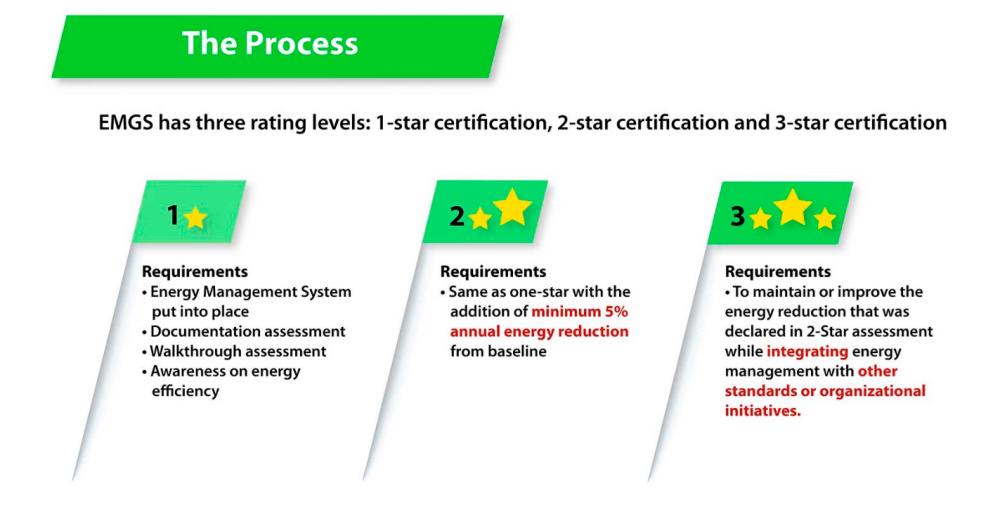IN A resounding testament to Malaysia’s commitment to sustainable development, the recent Energy Management Gold Standard (EMGS) Certificate Award Ceremony, officiated by the Natural Resources and Environmental Sustainability Minister Nik Nazmi Nik Ahmad heralded a new era of energy efficiency and environmental stewardship.
This milestone event, organised by the Malaysian Green Technology and Climate Change Corporation (MGTC), showcased the remarkable achievements of 107 organisations awarded EMGS certification, underscoring their dedication to efficient energy management.
The significance of this achievement cannot be overstated. Through the tireless efforts of these organisations, 203 GWh of energy per year has been conserved, translating to a staggering cost savings of RM74 million annually.
Additionally, reducing greenhouse gas (GHG) emissions by 115 kilotons of carbon dioxide equivalent per year marks a significant stride towards mitigating climate change and safeguarding our planet for future generations.
At the heart of this success lies the Asean Energy Management Scheme (AEMAS), a visionary initiative launched in 2010 by the Asean Centre for Energy (ACE).
Spearheaded by MGTC in Malaysia, the AEMAS programme aims to drive down GHG emissions through effective energy management practices.
Central to this endeavour is the EMGS certification, which recognises organisations that adhere to best practices in energy management, fostering a culture of sustainability and innovation.
Beyond mere accolades, EMGS certification offers tangible benefits for organisations, ranging from significant cost savings to enhanced environmental stewardship.
By implementing Energy Saving Measures (ECM), organisations can reduce their carbon footprint and create a more conducive environment for productivity and well-being.
Moreover, with AEMAS certification recognised across 10 Asean member countries, certified organisations can gain a competitive edge in the regional market.
Crucially, the EMGS certification programme aligns with Malaysia’s broader sustainability goals as outlined in the National Energy Efficiency Action Plan 2016-2025 (NEEAP), National Energy Policy 2022-2040 (DTN), and National Energy Transition Roadmap (NETR).
By encouraging widespread participation from diverse industry sectors, Malaysia is poised to make significant strides towards achieving net-zero GHG emissions, cementing its position as a global leader in sustainable development.
Efficient energy management is pivotal in combating climate change while nurturing the nation’s green economic trajectory.
Against this backdrop, the Ministry of Natural Resources and Natural Sustainability (NRES), in collaboration with critical ministries such as the Ministry of Economy and the Ministry of Transition Energy and Water Transformation (PETRA), alongside pertinent agencies like the Energy Commission (ST) and the Sustainable Energy Development Authority (SEDA), reaffirms its unwavering dedication to fostering efficient energy management programmes.
This resolute commitment aligns seamlessly with the strategic objectives outlined in the National Energy Efficiency Action Plan 2016-2025 (NEEAP), the National Energy Policy 2022-2040 (DTN), and the National Energy Transition Roadmap (NETR).
Moreover, it mirrors the global consensus echoed during the 28th Conference of the Parties to the Framework Convention United Nations on Climate Change (COP28) in the United Arab Emirates (UAE) in December 2023, where member countries pledged to amplify efforts to triple global renewable energy capacity and double energy efficiency by 2030.
Indeed, the International Energy Agency (IEA) underscores the indispensable role of energy efficiency initiatives in realising net-zero carbon targets, emphasising that energy efficiency must be prioritised as the foremost “fuel”. This paradigm shift heralds a new era of sustainable development, where responsible energy management is the linchpin of environmental stewardship and economic resilience.
In light of this imperative, the government has instituted incentives to galvanise energy efficiency initiatives spearheaded by organisations and local industry players. Notable among these incentives is the Green Investment Tax Allowance (GITA), which offers tax relief on the acquisition of energy-efficient assets for personal use, effective from January 1, 2024, to December 31, 2026.
Additionally, the government has earmarked RM1 billion under the Green Technology Financing Scheme (GTFS) 4.0 to provide financial support for energy efficiency projects, extending this opportunity to Energy Service Companies (ESCOs) engaged in advancing energy efficiency solutions.
Furthermore, the Ministry of Energy Transition and Water Transformation (PETRA) champions the cause of energy audits through the Energy Audit Conditional Grant Programme (EACG).
This initiative aims to empower owners in the industrial and commercial sectors to conduct comprehensive energy audits in collaboration with ESCOs, thereby identifying and capitalising on opportunities for electricity savings within their premises.
As stewards of our nation’s future, we must embrace the transformative potential of efficient energy management.
By harnessing the power of innovation and collaboration, we can pave the way towards a sustainable and prosperous future for all.
Let us seize this opportunity to drive positive change and usher in an era of unparalleled environmental and economic vitality.
As we celebrate these organisations’ remarkable achievements, let us also redouble our efforts in promoting energy efficiency and environmental conservation.
The EMGS certification programme serves as a beacon of hope, illuminating the path towards a greener, more sustainable future for Malaysia and beyond.
Together, let us continue to champion environmental stewardship, ensuring a legacy of prosperity for generations to come.
This article is contributed by the Ministry of Natural Resources and Environmental Sustainability.









